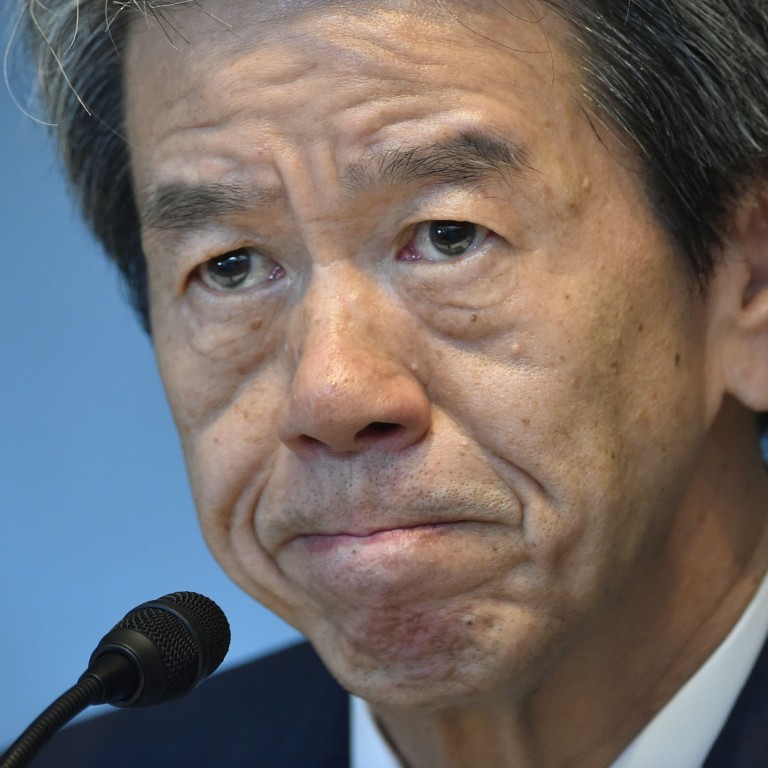
New | Say sorry like you mean it or pay the price, survey on CEOs finds
Bosses who put on a brave face or smile during an apology can do harm to firms' bottom lines
Toshiba Corp boss Hisao Tanaka fronted the media on Tuesday, lines of contrition etched deeply into his face, to apologise for a HK$9.5 billion accounting scandal that has rocked corporate Japan.
By assuming a facial expression to match his verbal expression of remorse, Tanaka may have saved Toshiba from months of punishment at the hands of irate investors, according to recent research.
"[Chief executives] who demonstrate sadness in their facial expressions when apologising are largely able to restore confidence and keep their companies on an even financial trajectory," said Gabrielle Adams, an assistant professor of organisational behaviour at London Business School and co-author of a study by the school and the University of California Berkeley's Haas School of Business.
"On the other hand, [chief executives] who say they are sorry but fail to show sadness in their faces find their financial bottom line adversely affected for as long as three months after the apology."
According to Adams, putting on a brave face does not help, while smiling during an apology is positively harmful, even if it is motivated by the desire to appear warm and friendly.
The study found a clear correlation between greater evidence of smiling during an apology and worse financial results immediately afterwards, often detectable two and sometimes three months down the track.
It also found that perfunctory or forced apologies were poorly received, with the severity of the backlash increasing proportionately with the seniority of the speaker, suggesting companies should choose senior spokespeople with the ability to apologise sincerely - or the emotional intelligence to appear sincere.
"Apologising well matters. And if you're the [chief executive], it is critical," Adams said.
Researchers studied 29 corporate apologies which preceded stock movements that diverged from projections, examining more than 180,000 individual frames of video.
But the study could not pinpoint the exact source of the negative reaction - whether it came from the investors themselves or from the words or behaviour of others.
The findings could have implications for markets with large numbers of retail investors like China. But no equivalent study has been done in Asia and the researchers concede that cultural differences may affect stakeholder expectations and reactions.
If Tanaka's sincerity could be measured by the depth of his bow, it was beyond doubt. But perhaps the proof is in the price. On the Tokyo Stock Exchange, Toshiba's share price has fallen 3.1 per cent since Tuesday.

